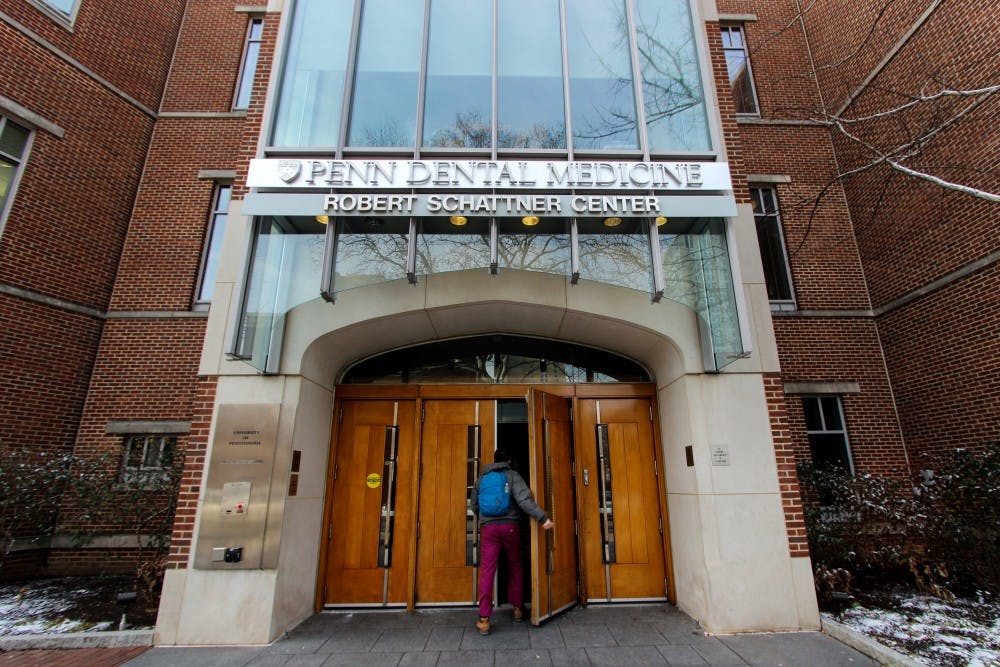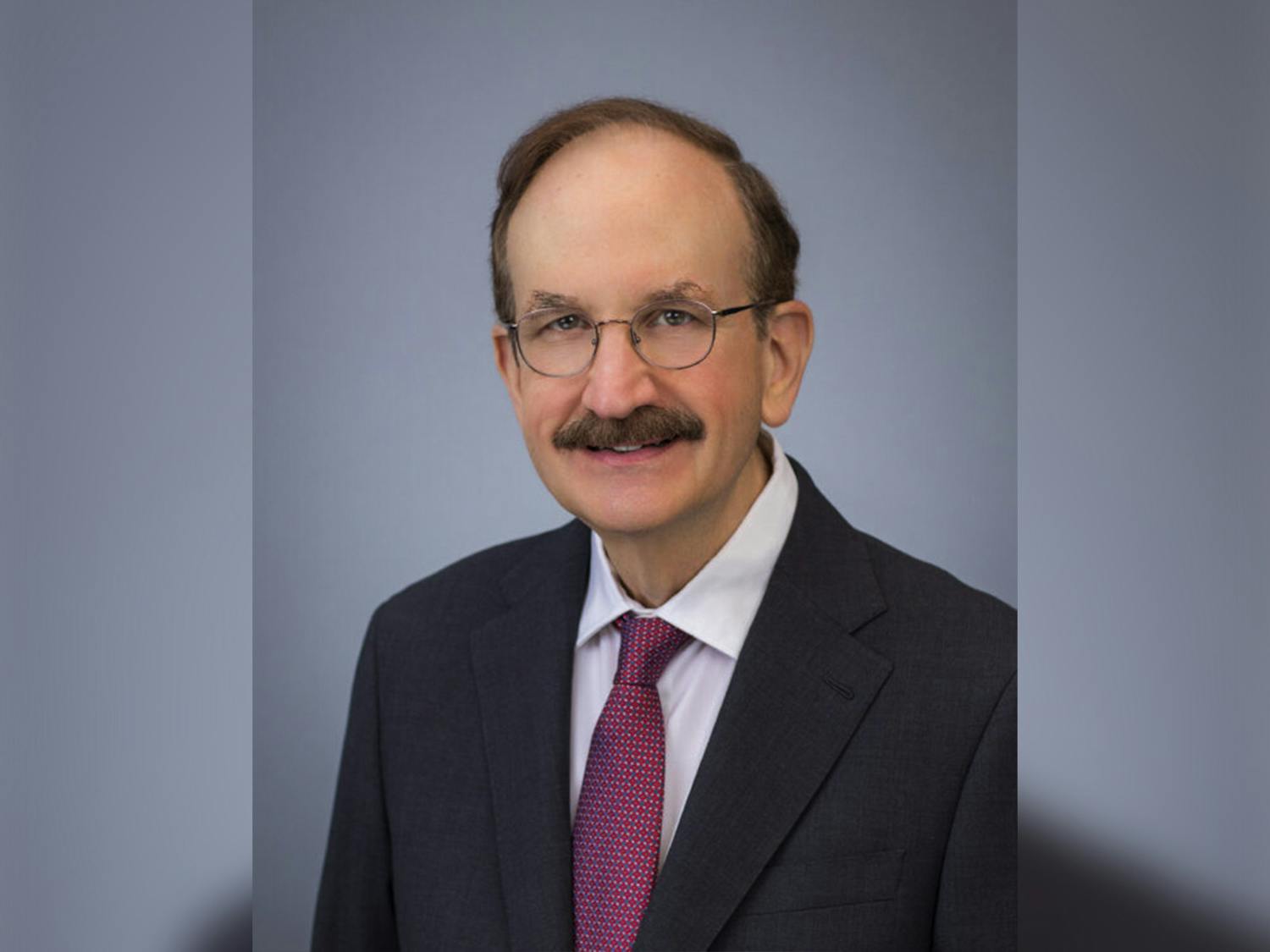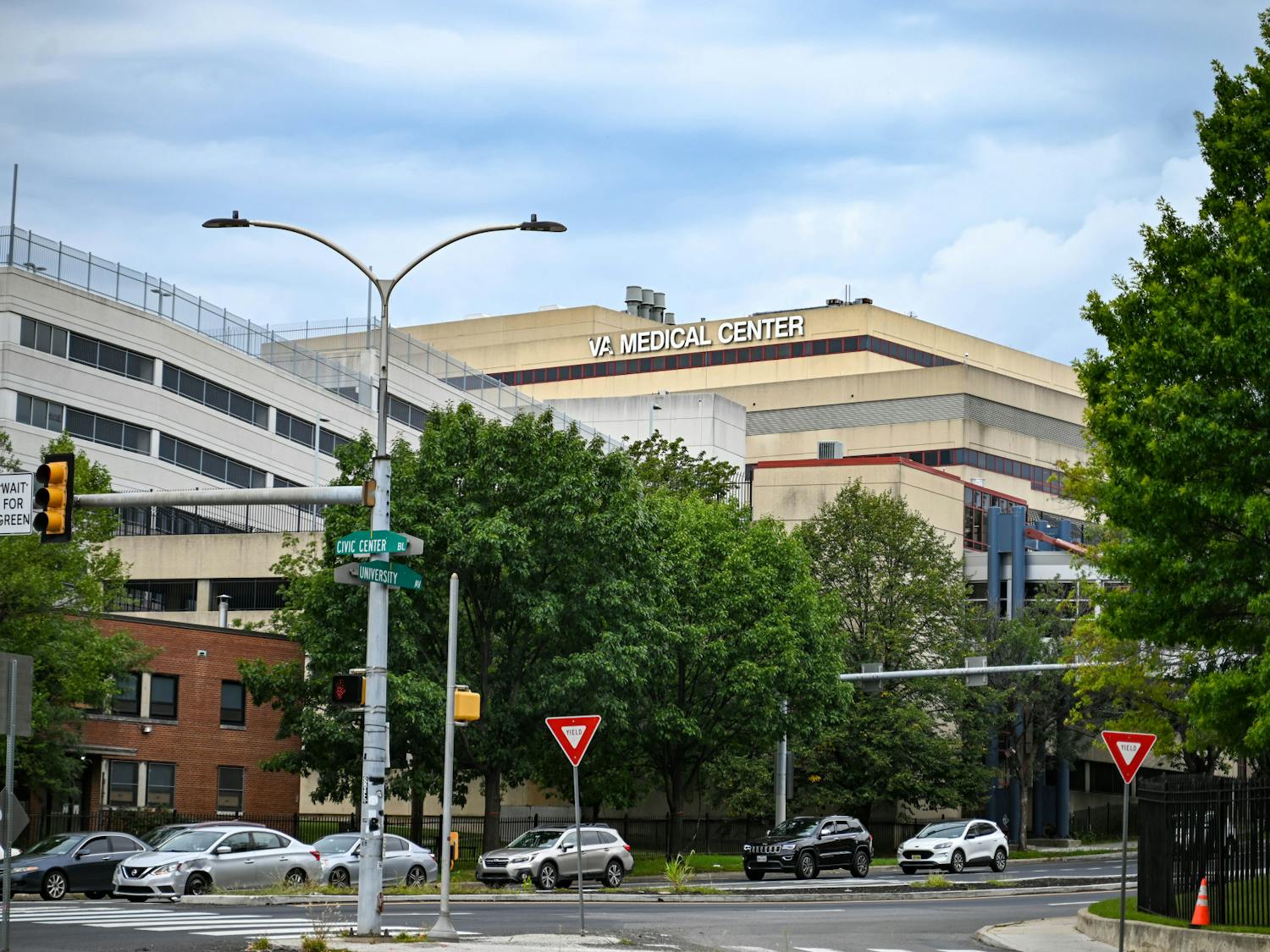For the first time, one of the University of Pennsylvania's schools is requiring its students to be trained in administering Narcan — a medication that can mean the difference between life and death for those suffering from opiate-related overdoses.
This semester, Penn's School of Dental Medicine required that all students and faculty undergo training to use Narcan. Dean of Dental Medicine Mark Wolff said he decided to require the training for the school's educational affiliates after learning about Philadelphia's efforts to combat the rise in opiate-related deaths by distributing Narcan. He added that he has friends whose children have died from opiate-related overdoses.
"We can't easily predict who's going to be having these overdoses, but they occur in [the students'] dormitories, in restaurants in the street; they occur in clubs and music halls," Wolff said.
According to the Philadelphia Department of Public Health data released earlier this year, upward of 1,200 unintentional overdose deaths occurred in the city in 2017. While neighborhoods in North Philadelphia saw the highest density of such deaths, new "hotspots" have emerged in South, Northeast, and West Philadelphia.
So far, two trainings have been held at the Dental School. Professor Elliot Hersh led the sessions, introducing students to the science and methodology of administering Narcan. Wolff noted that there will be additional trainings so that all students and faculty can learn about the medication. Currently, the Narcan training sessions are only open to Dental School affiliates.
The Dental School, however, does not provide students with medication to keep for potential use after undergoing training. Instead, interested students can purchase bottles with medical insurance.
Wolff noted that the drug can be costly, with a bottle ranging from $15 to $100 depending on a person's insurance plan.
While Wolff is the first dean to mandate a school-wide training in Narcan, other groups on campus have taken steps to address the rapidly growing effects of the opioid crisis in Philadelphia.
RELATED:
Penn student medics are now armed with Narcan to counter opioid overdoses
At an event, Penn students prep for competition to propose opioid crisis solutions
Philadelphia is the first city in U.S. to allow supervised drug injection sites
In April, members of the student-led Medical Emergency Response Team began carrying Narcan on their shifts. In May, Vice Provost for University Life Valarie Swain-Cade McCoullum and Vice President for Public Safety Maureen Rush sent an email to all Penn undergraduates informing them about the crisis. Around the same time, the Division of Public Safety installed a drug "Take-Back Box" in the main foyer of its headquarters at 4040 Chestnut St.
While not mandatory, some students at the School of Nursing are trained to use Narcan, Nursing School's Associate Director of Communications Edward Federico said.
The Perelman School of Medicine's Senior Vice Dean for Medical Education Suzanne Rose explained that Medical students are currently participating in studies related to opiate education in order to help the school assess how best to train students on the use of Narcan.
Although he has yet to attend a school-led session, Dental student Matt Casey said he received a ten-minute Narcan training while working at Prevention Point Philadelphia last summer. He stressed the importance of teaching people about harm reduction therapy to combat the opioid crisis.
"People get caught in the Penn Bubble and never venture outside of it, or if they do, they always go to a bar to do something fun," he said. "They never see other parts of the city where the opioid crisis is a problem."
Casey noted that he believes the Dental School is a logical starting place for the rollout of widespread Narcan training because of the use of post-operative prescription of opiates in the industry.









